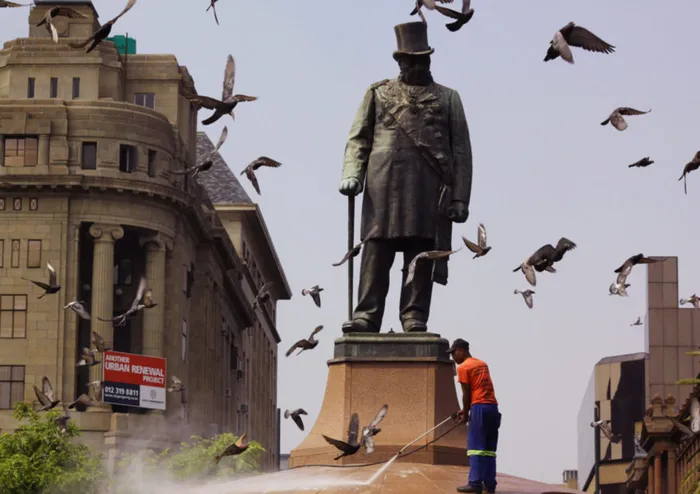AfriForum warns of 'identity attack' as EFF pushes to remove colonial and apartheid statues

AfriForum defends statues amid EFF's push for removal.
Image: File photo: Thobile Mathonsi
Lobby group AfriForum has launched a fierce defence of apartheid-era monuments after the EFF tabled a parliamentary motion calling for their removal from public spaces.
The organisation condemned the proposal as a direct assault on Afrikaner heritage and warned that dismantling such monuments would deepen divisions in an already polarised country.
"Politicians who have proven that they cannot build anything, like the EFF, are simply encouraging destruction and violence. Because the EFF has failed to build even one promised school, they are now focusing instead on promises to tear down statues," said Ernst van Zyl, AfriForum's head of public relations.
Van Zyl claimed that the removal of historical monuments could open the door to serious forms of exclusion. This comes as a response to a heated debate in the National Assembly on Friday, where EFF leader Julius Malema reignited the national dispute over colonial and apartheid symbols.
"The removal of part of the community's symbols, statues and heritage is a shameless attempt to strip away this group's identity and right to exist. History offers numerous examples of cases where the physical suppression of or violence aimed at specific communities was preceded by similar actions.
"If, according to the EFF, there is no place for statues of Louis Botha or Paul Kruger or the Voortrekker Monument, the place of the Afrikaner is also in serious jeopardy,” he said.
EFF Chief Whip Nontando Nolutshungu, who presented the motion, framed the issue as part of South Africa's ongoing struggle to break free from the lingering legacy of white supremacy.
"The unresolved question of colonial memory and its poisonous symbols stood unchallenged on Friday," she told MPs. "They are not neutral symbols of history. They are monuments of colonialism and material reminders that although the political regime of apartheid has been formally defeated, the ideological, cultural, and economic structures of conquest remain intact."
Nolutshungu argued that the placement of these statues was designed to normalise oppression and to impose psychological dominance over generations of black South Africans.
"That is why they were placed in city centres, in front of Parliament on the highest hills, so that every African child growing up under colonialism would look up and see his or her oppressor portrayed as a hero," she said.
She maintained that removing such monuments is essential to building a democratic society rooted in equality and dignity.
However, AfriForum has framed the debate as an existential threat to the Afrikaner community. Van Zyl accused the EFF of pursuing a 'demolition culture' and warned that once the principle of removing monuments is accepted, there is no limit to what could be erased.
IOL News
Get your news on the go. Download the latest IOL App for Android and IOS now.
Related Topics: